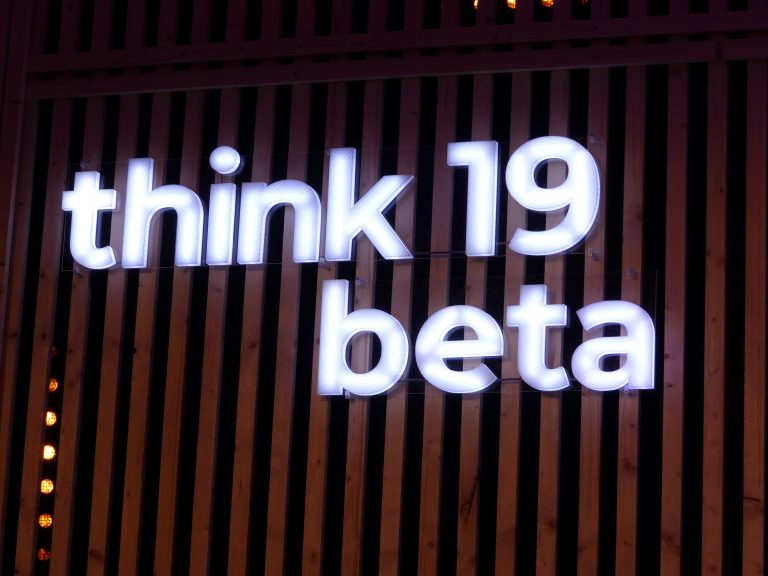
For the second time, the BVDW (Bundesverband Digitale Wirtschaft) invited to think beta, the conference dealing with digital transformation in Germany, on 19 November 2019. And the name was program, because think beta not only dealt with digitization at a technical level, but also discussed and questioned its effects. This was also reflected in the choice of the event partner – EWE, the energy company from the north of Germany. The question of energy and sustainability should be directly linked to the question of the progress of digitization, which is why think beta focused on it. At present, 3.5% of the greenhouse gases emitted worldwide are associated with the digital economy, 20% are forecast for 2025 – and that is no longer so far away.
Another important topic is the change in corporate culture that goes hand in hand with digital technologies and digitized processes. Matthias Wahl – President of the BVDW – was the first to speak on this topic, as the association also provides its members with advice and support on these issues.
The first panel was about restructuring and how to take old-established employees within the process and alleviate the fear of change. Dr. Urban Kreussen – responsible for innovation at EWE – spoke with Franziska Stubbemann from adoptr and Lencke Steiner from the FDP about the stumbling blocks of digitization, dealing with errors and fax machines. It became clear that digitization must not be an end in itself, but must benefit the company in order to be able to work successfully in the long term. Innovations must be designed and planned in such a way that they maintain a balance. Those who drive them should be close to the company in order to develop meaningful innovations, but they also need sufficient distance to allow long-term, far-sighted considerations to flow in. In the innovation process, internal cultures and (age) structures must also be taken into account and linked without wanting to make everything the same. And it must be clear that the management should also be critical of the innovation team and also stand by a “no” in order to remain focused. There is a lot of potential in innovations, but this can also bring exotic blossoms.
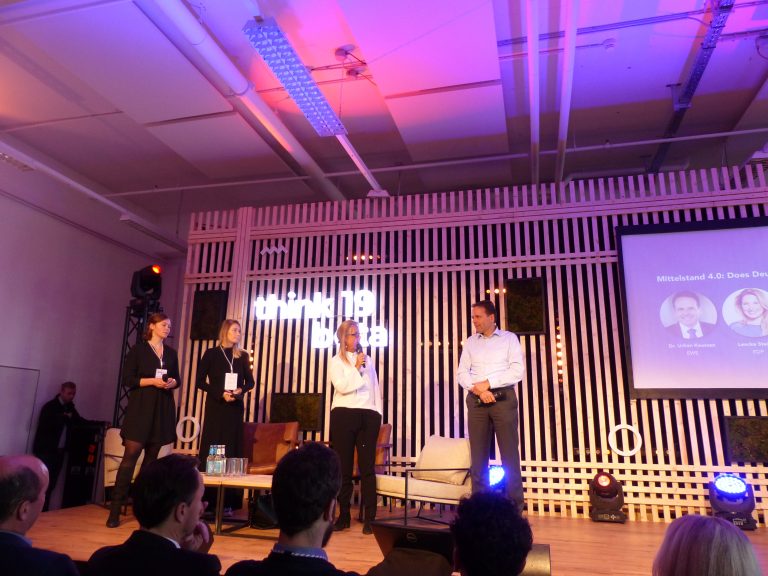
It is precisely the prevention of equalization that is an important point for corporate culture. Everyone assesses innovations differently, including every employee. Therefore, an accompanying communication strategy is very important in order to really be able to take all employees along in the process. A good strategy means that, before changes are introduced, everyone is told why there are changes, what they are intended to achieve and what the process will look like. Changes cause various fears, these fears have to be countered from the beginning, if necessary individual teams also get more than one explanation, until all employees are basically open for the change, until it is clear that the employees are not in question, but work processes and structures. In this way, managers can take on important role models and show and live openness to the innovations. Digitization can only be implemented together.
In this context, the handling of mistakes in the company can be addressed. An open, basically sanction-free error culture helps a company to develop in a future-oriented way. Employees who can admit their mistakes learn from them and thus develop sustainable strategies. Lencke Steiner summed it up: “It is only a mistake if you make the same mistake twice. The first time, you didn’t know it wouldn’t work.”
In the second panel, employees of economic giants took up these topics further and reported on their digitization processes. Anna-Lena Bruné, VP Digital Transformation, Deutsche Telekom, Julia Exner, Member of the Executive Board, OTIS Holdings, Marie-Luise Klose, Senior Manager Venture Development, DB Digital Ventures, and Nicolai Andersen, Head of Innovation, Deloitte, spoke very openly about opportunities and difficulties. Here, too, it became clear that digitization should promote and advance the organization and products, and cannot be understood and supported if it is only an end in itself. Digital transformation affects the entire organization, technology, structure, culture and skills of employees. As we have already stressed, digitization must be wanted and sustained, because the process is rather lengthy. Sometimes it helps to change and diversify the teams that work together so that different knowledge, different experiences and different aged groups learn and support each other. At Deutsche Telekom, it was thus possible to involve long-standing employees in the change process. Deutsche Bahn relies above all on a mature communications strategy in order to involve a wide variety of employees in the digitization process. The range of different professions from data scientist to switch maker makes this a challenge, because Deutsche Bahn wants to involve all employees emotionally.
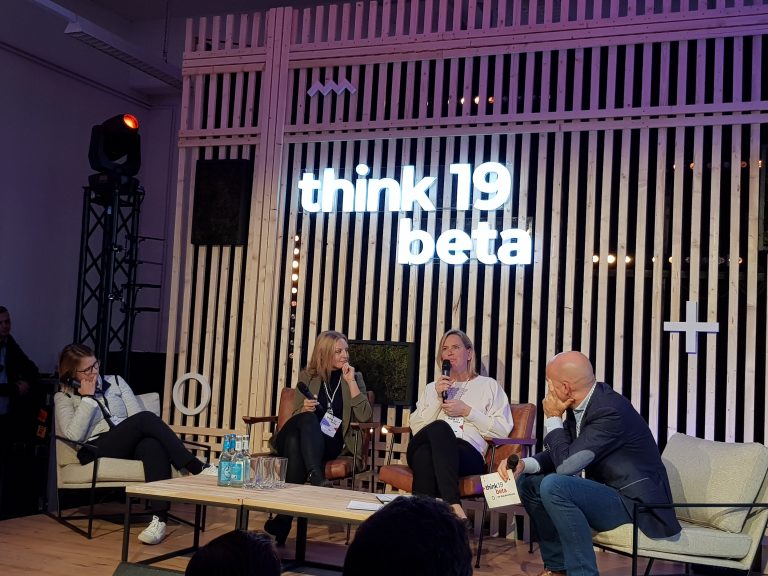
At noon there were three workshop offers, which gave the participants the opportunity to discuss concrete questions of the digitization process with professionals: on the one hand there was Energy 4.0 – Digitization of the energy sector, here the advantages and disadvantages of the smart meter were discussed, which is under discussion to be introduced in Germany. In Are you ready for GDPR?, the practical everyday life in which we all find ourselves has been transformed into a new concept. – Do’s and Dont’s for data protection, an important and never-ending topic. The third workshop was on Digital Leadership, which discussed how an organization can be successfully transformed and how a woman can assert herself in the male domain of “industry”.
In the third panel, Dr. Nari Kahle, HR Strategy and Innovation, Head of Social Sustainability, Volkswagen, Silvia Hennig, Founder & CEO, Neuland 21 and Christian Decker, CEO, DESMA, spoke about projects and strategies to implement digitization in more rural regions and to sensitize employers to the fact that they are also introducing remote work to enable their employees to choose their place of residence freely. It would also be nice if the structures in Germany were improved in such a way that digitally working companies are also encouraged to invest in more rural regions and create local jobs. The network, which has not yet been fully developed, plays a particularly important role here, as a good Internet connection is a necessary prerequisite for digital work.
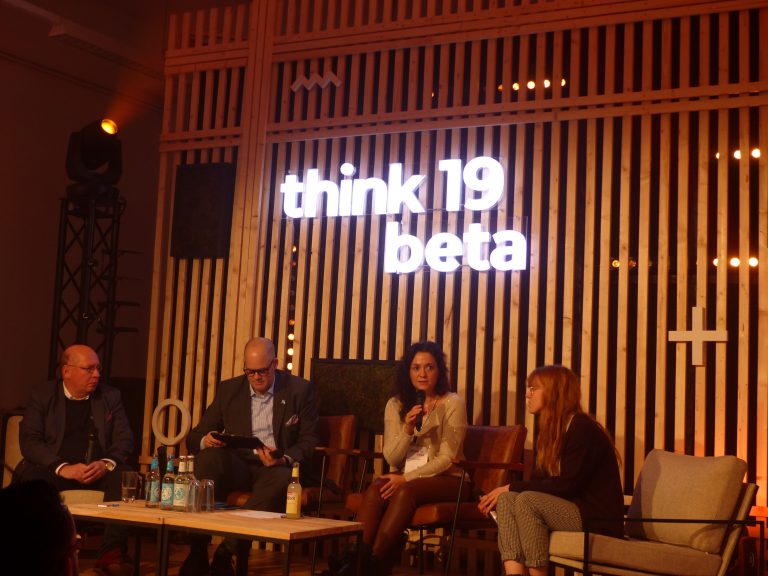
The last panel of the multifaceted day focused on why digitization and sustainability belong together. Dr. Wolfgang Faisst, Head of Next Generation Business Processes & Practices, SAP SE and Deputy Chairman, BVDW-Forum Digitale Transformation und Internet of Things, Sarah Ryglewski MdB (SPD), Parliamentary State Secretary, Federal Ministry of Finance, Frederike Oberheim, activist, Fridays for Future, and Prof. Jörg Müller-Lietzkow, President of HafenCity University and cnetz spokesperson led this sustainable discussion. As has been clear all day, digitization eats up energy, so we should be clear about what we want and need and not just digitalize because we can. Digitization can be shaped, but not everyone seems to be aware of this fact. That is why more and more approaches are being developed as to how we can make our actions more sustainable. Since sustainability is often associated with restrictions or higher prices, this issue must somehow be brought more into people’s minds, so that we are all interested in acting sustainably and consciously using resources. Sustainable is not cool, but it is important.
The event ended with a keynote speech by Astrid Maier, editor-in-chief of Xing, who spoke about the digital future of Germany and Europe. There is an incredible amount of potential in Germany to be successful in the long term. Her approach is the digital social market economy, which is part of a strong market in Europe. The potential is there, now it is no longer just a matter of discussing, but of acting.
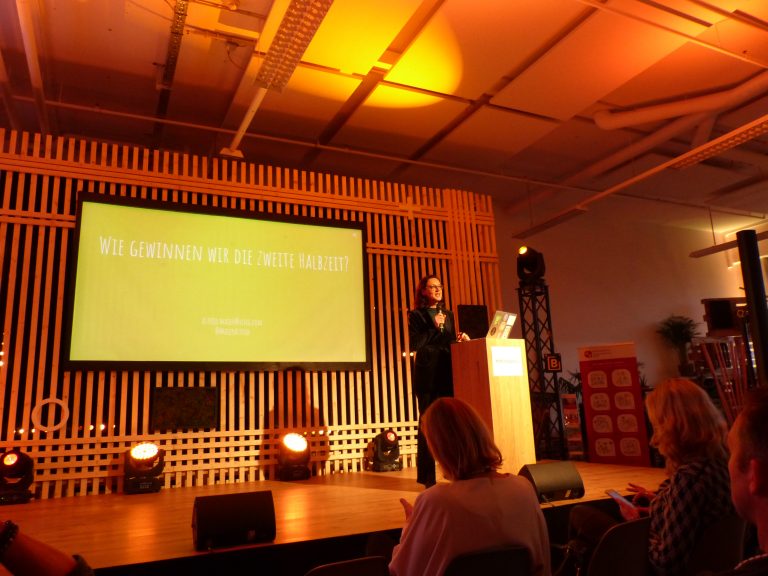
All in all, think beta was a very successful event with high-quality, well-informed speakers and moderators, a very good choice of topics, good catering in a very suitable, beautiful location. It can be recommended to anyone who is concerned with the idea of digitization in companies or is already in the process of doing so.
Friederike Zelke
